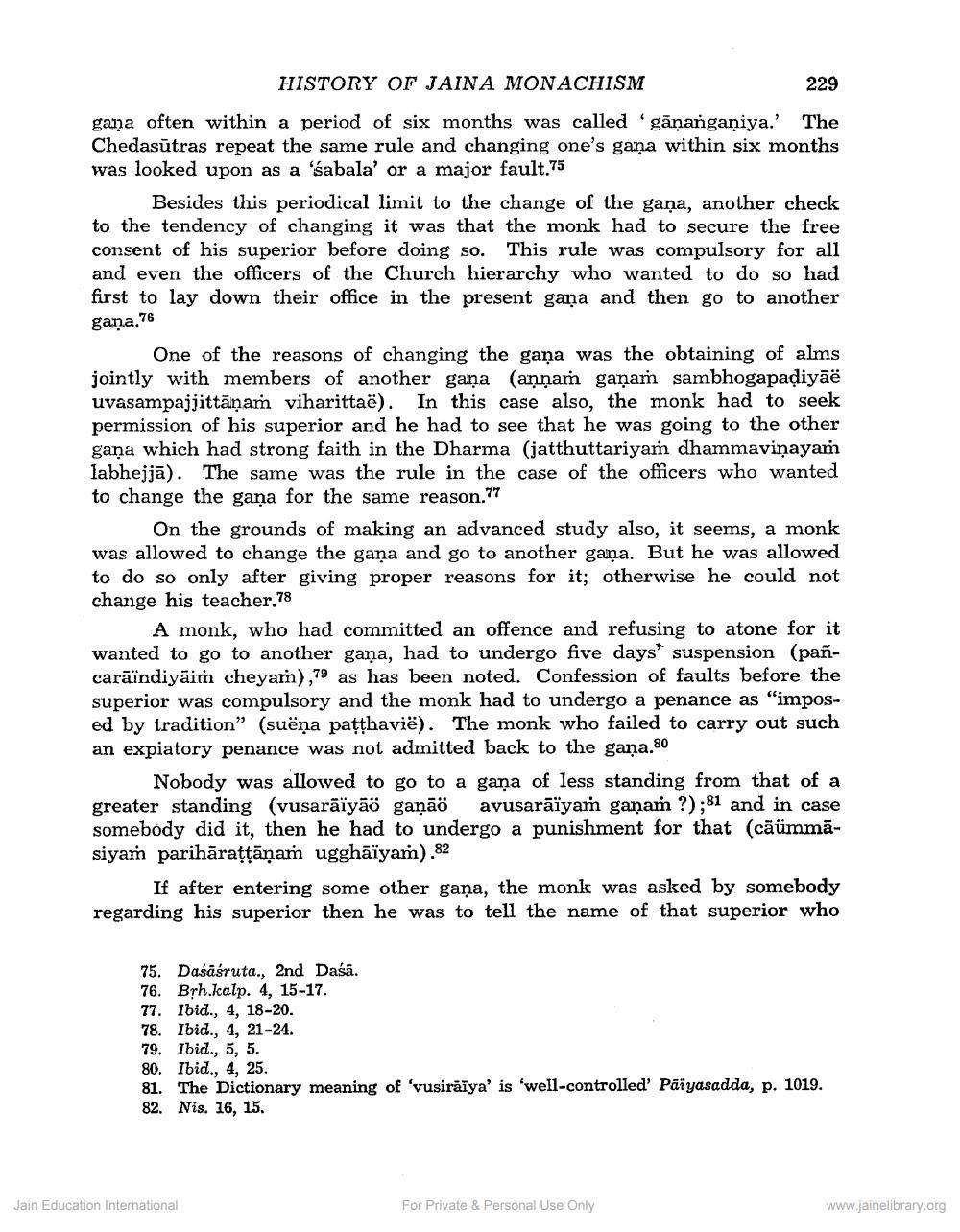________________
HISTORY OF JAINA MONACHISM
229 gana often within a period of six months was called 'gānanganiya.' The Chedasūtras repeat the same rule and changing one's gana within six months was looked upon as a 'sabala' or a major fault.75
Besides this periodical limit to the change of the gaņa, another check to the tendency of changing it was that the monk had to secure the free consent of his superior before doing so. This rule was compulsory for all and even the officers of the Church hierarchy who wanted to do so had first to lay down their office in the present gana and then go to another gana.76
One of the reasons of changing the gana was the obtaining of alms jointly with members of another gana (aņņam ganam sambhogapadiyāë uvasampajjittānam viharittaë). In this case also, the monk had to seek permission of his superior and he had to see that he was going to the other gana which had strong faith in the Dharma (jatthuttariyam dhammaviņayam labhejjā). The same was the rule in the case of the officers who wanted to change the gaņa for the same reason.77
On the grounds of making an advanced study also, it seems, a monk was allowed to change the gana and go to another gana. But he was allowed to do so only after giving proper reasons for it; otherwise he could not change his teacher.78
A monk, who had committed an offence and refusing to atone for it wanted to go to another gana, had to undergo five days' suspension (pañcarāïndiyāim cheyar),79 as has been noted. Confession of faults before the superior was compulsory and the monk had to undergo a penance as "imposed by tradition" (suëņa patthavië). The monk who failed to carry out such an expiatory penance was not admitted back to the gana.80
Nobody was allowed to go to a gana of less standing from that of a greater standing (vusarāīyāö ganāö avusarāïyam ganam ?):81 and in case somebody did it, then he had to undergo a punishment for that (cāümmāsiyam parihārațțānam ugghāïyam).82
If after entering some other gana, the monk was asked by somebody regarding his superior then he was to tell the name of that superior who
75. Daśāśruta., 2nd Daśā. 76. Brh.kalp. 4, 15-17. 77. Ibid., 4, 18-20. 78. Ibid., 4, 21-24. 79. Ibid., 5, 5. 80. Ibid., 4, 25. 81. The Dictionary meaning of 'vusiraiya' is 'well-controlled' Păiyasadda, p. 1019. 82. Nis. 16, 15.
Jain Education International
For Private & Personal Use Only
www.jainelibrary.org




